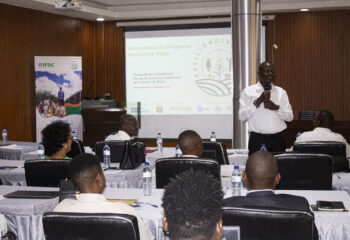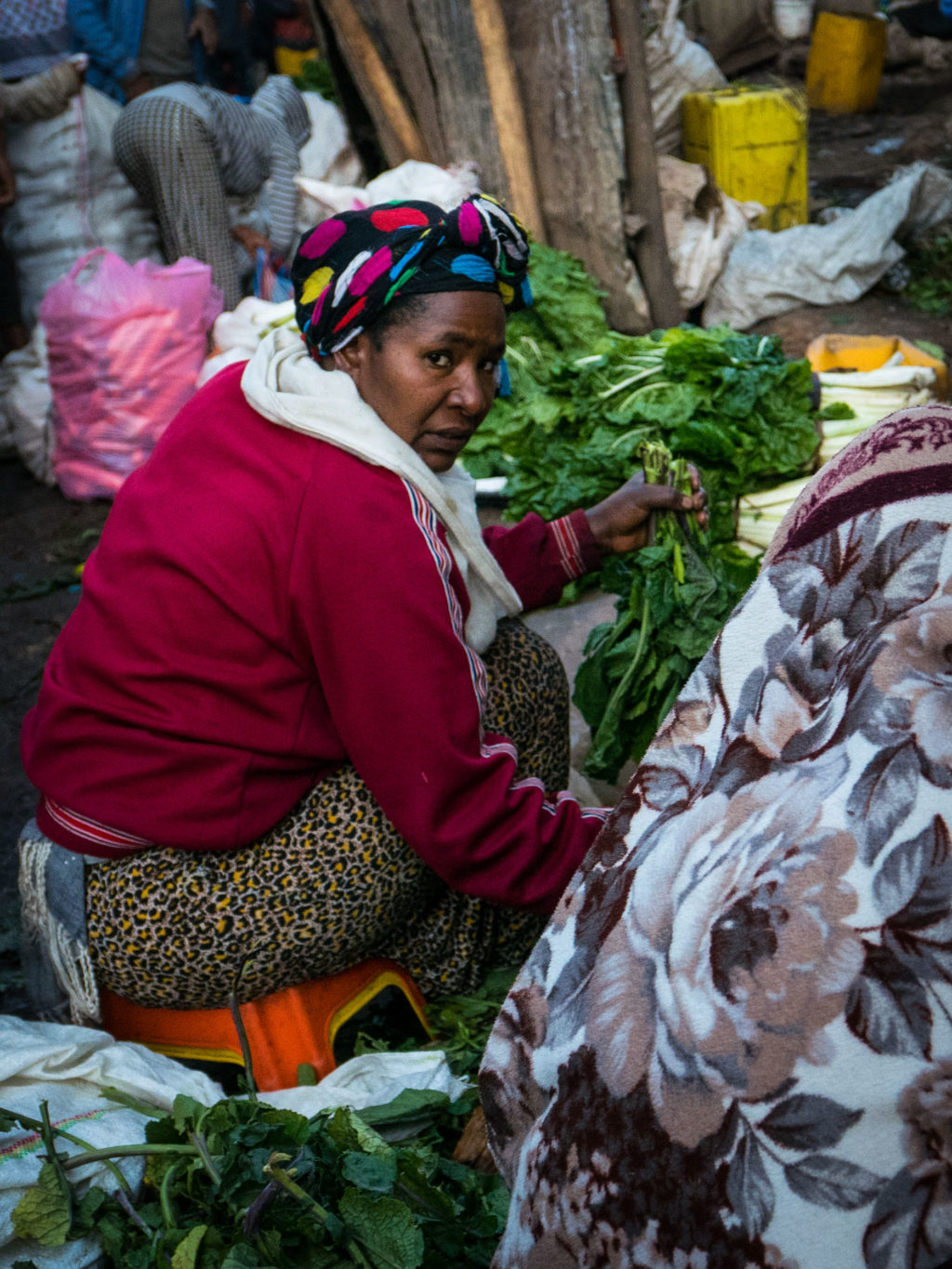
2SCALE is an incubator program implemented by IFDC and the BoP Innovation Center (BoPInc) with funding from the Netherlands Directorate General for International Cooperation (DGIS) and private sector stakeholders. The program manages a portfolio of public-private partnerships (PPPs) for inclusive business in agri-food sectors and industries. 2SCALE offers a range of support services to its business champions (SMEs and farmer groups) and partners, enabling them to produce, transform and supply quality food products. These products go to local and regional markets, including to base of the pyramid consumers. See the project’s current results here.
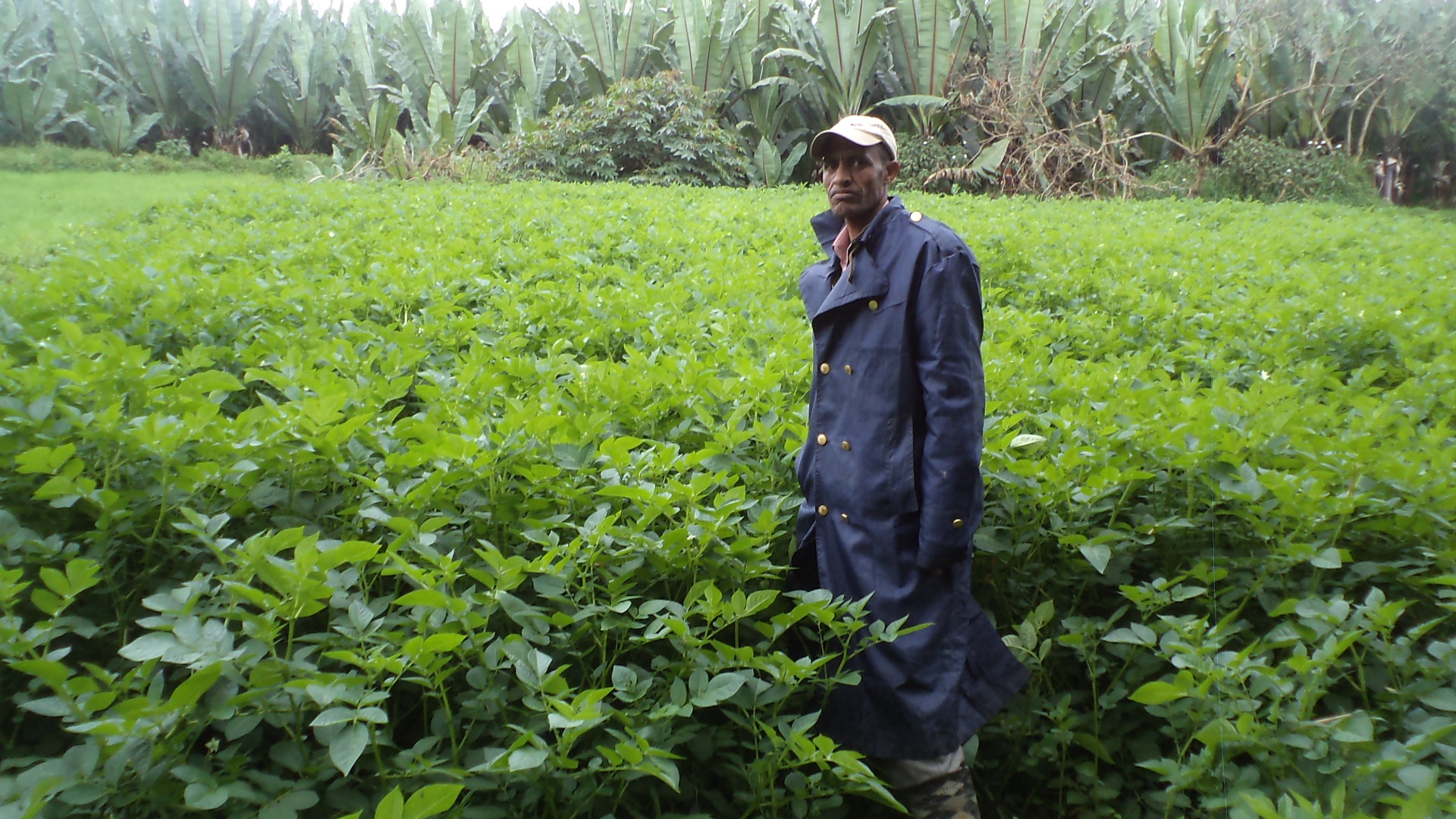
The Liben and Robe Berga unions in the Oromia Region of Ethiopia are halfway through a major business make-over, with IFDC’s Toward Sustainable Clusters in Agribusiness through Learning in Entrepreneurship (2SCALE) project providing technical advice and business linkages. The unions, which earlier focused on cereals, are now growing potatoes for the Addis Ababa market and are planning not just for 2018, but for 2019 as well. A governance meeting in March focused on how to ensure sustainability after 2SCALE phases out in December 2018. The district office of trade and marketing will take over information dissemination activities, which are currently led by 2SCALE. The federal cooperative agency will manage the internal capitalization initiative, and the office of agriculture and the Holeta Agricultural Research Center will coordinate seed multiplication and distribution. The two unions (which already fund 70% of cluster activities) will fund training and coaching programs.
Marketing support (e.g., participation in business fairs and exhibitions) has helped both unions identify large-scale buyers. So far this year, they have sold more than 200 tons of ware potato and 100 tons of seed potato. Both unions are also planning to set up small processing plants to make chips and fries. Construction of factory sheds is complete, and procurement of equipment is ongoing. Both plants will begin operating later in 2018.
Seed Potatoes: Women Lead the Way
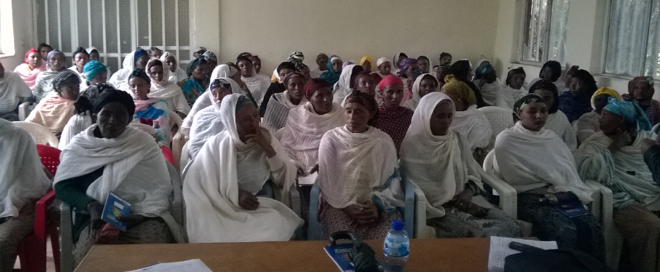
Most small-scale potato farmers in Ethiopia – even those who produce for market – use farm-saved seed rather than high-quality certified seed. 2SCALE is bringing partners together to strengthen the production and distribution of seed potatoes.
One example is Waldaa Chimina fi Gudinaa dubartoota ganda Waldo Talfem, a group of 80 women organized as a primary cooperative under the Liben farmers’ union. Farmers in the Waldo Talfem cluster selected the cooperative as their main seed potato supplier. The women were trained on seed multiplication techniques by experts from the union. Holeta Research Center provided quality seed, while other partners provided fertilizers and agrochemicals. Farmers contributed land, labor, and building materials for a new store designed specifically for seed potatoes. Construction has begun, and the store will be operational by September.
“Last year we were potato farmers; now we are seed producers,” says the president of Waldo Talfem. “Farmers in the cluster are depending on our seeds, and we will not disappoint them.”
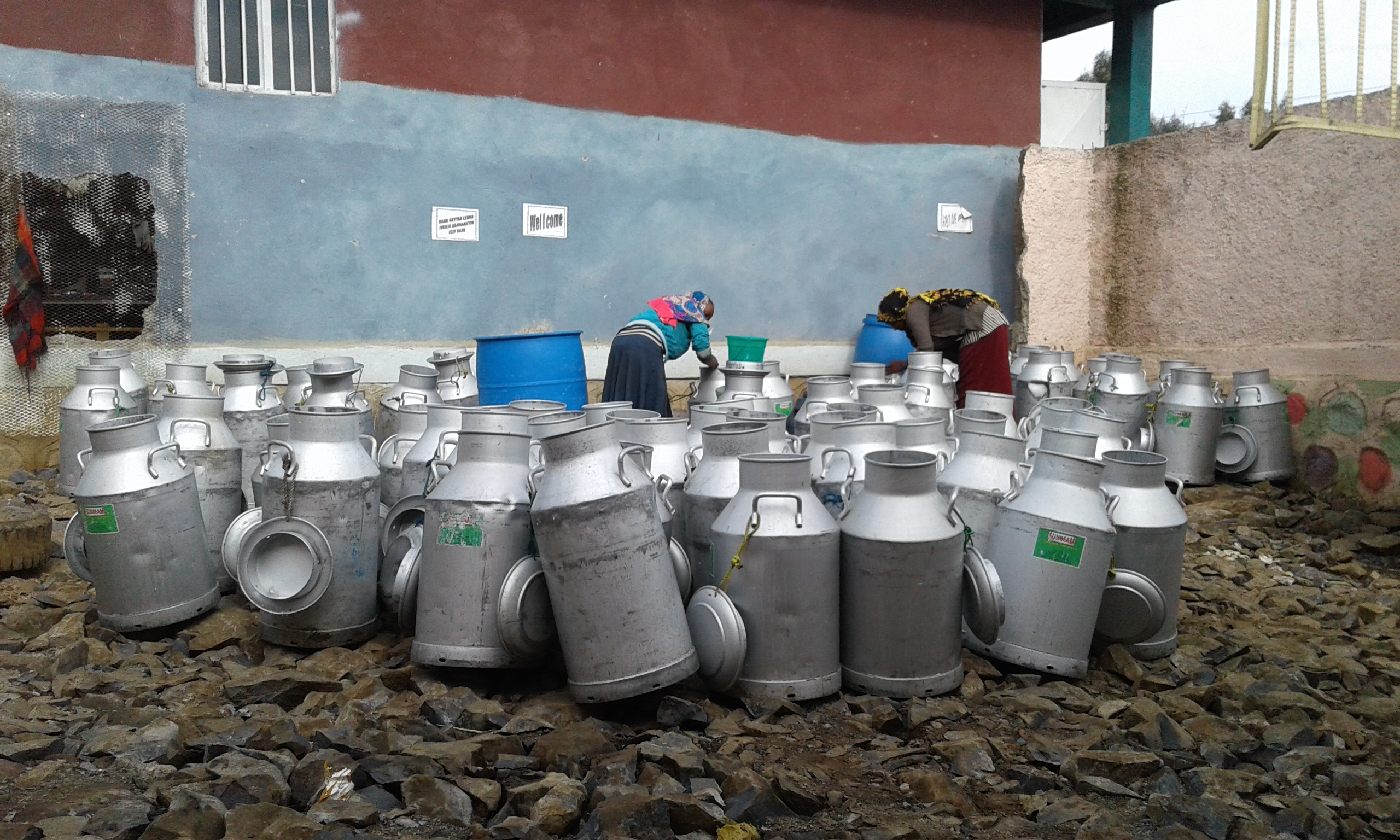
Ethiopia’s dairy sector is growing, thanks partly to technology adoption and market linkages facilitated by 2SCALE. The project works with feed manufacturer Alema Koudijs Feeds and two dairy processors, Family Milk in Addis Ababa and Etete in Sendafa, Oromia. Small-scale dairy farmers now have a guaranteed market and are therefore willing to invest to improve output and quality. Milk yields have increased on average by four liters per cow per day. Butterfat content has increased from 2.7% to 3.4%, thanks to farmer training programs implemented with support from government extension staff.
So far this year, Family Milk and Etete have sourced more than 1.2 million liters of raw milk from 3,067 farmers. Family Milk, for example, now purchases 47% more milk than the company did last year. Sales of its new 250 ml pack of pasteurized milk continue to grow, and distribution is being expanded from Addis Ababa to three more towns: Adama, Bishoftu, and Modjo.
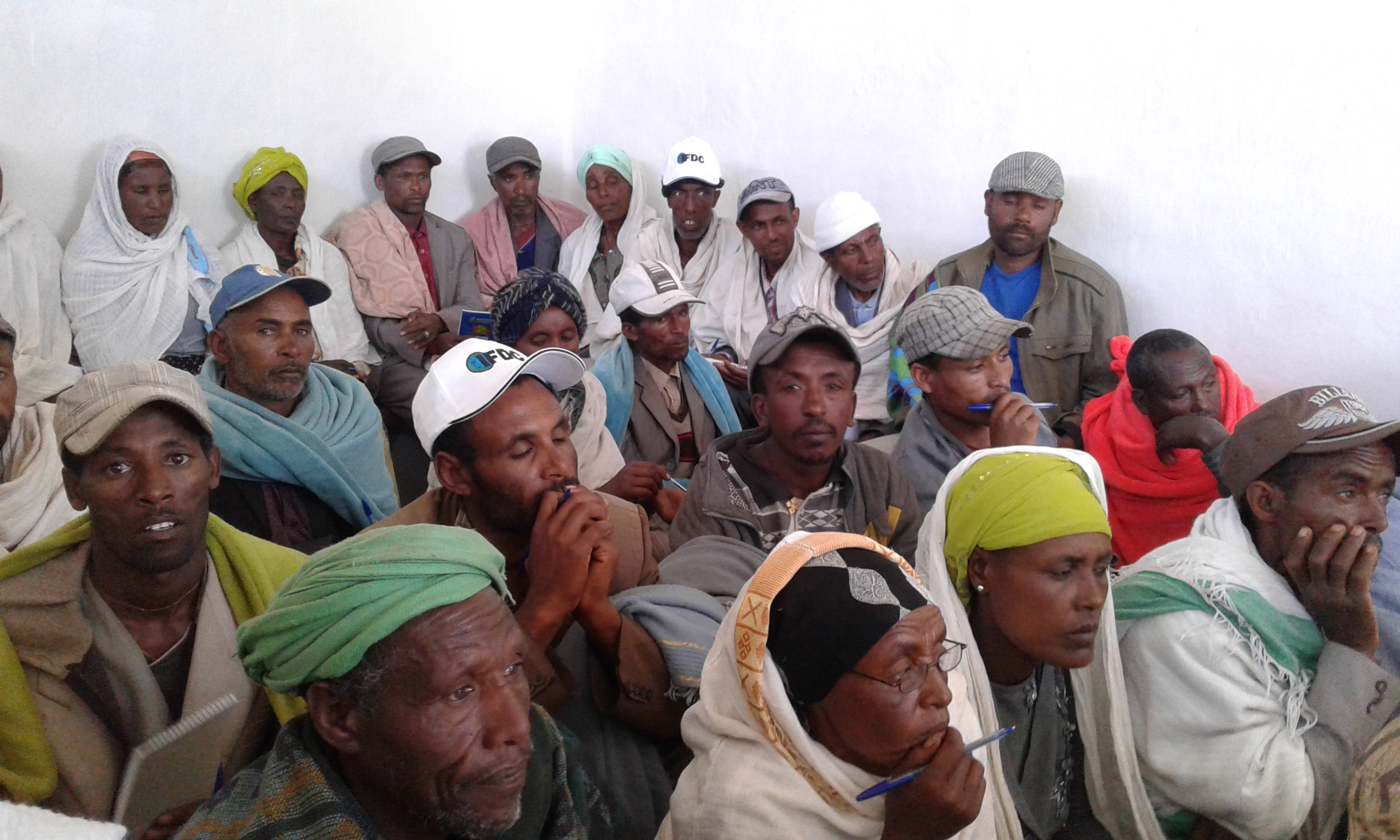
Feed concentrates from partner firm Alema Koudijs, farmer training programs led by partner firms and government extension staff, and guaranteed markets and better prices are all part of 2SCALE’s holistic approach. The approach has helped small-scale dairy farmers increase milk yields and quality and become competitive and commercially viable.
Farmers supplying to Etete and Family Milk continued to get high quality AKF feed concentrates on credit at local milk collection centers. So far this year, more than 100 tons of feed have been distributed to about 600 farmers. Etete Dairies has given farmers an 11% price increase to reward improvements in milk quality, and to offset the costs of feed concentrates.
2SCALE is also promoting fodder production to complement the use of concentrates. Last year the project completed a small pilot to test a new double-cropping forage system that combines oats and vetch. The benefits were evident: more and better-quality feed, balanced nutrition, and improved soil fertility thanks to nitrogen-fixing by the vetch plants. The project scales out this season with a training and demonstration program led by 42 lead farmers. Each farmer has established a quarter-hectare demo plot where vetch and oats will be grown with the recommended agronomic practices (e.g., optimal planting date, seed rate, and good agricultural practices [GAPs]). Inputs were supplied by the three partner firms. The plots are ready, and planting will begin shortly.
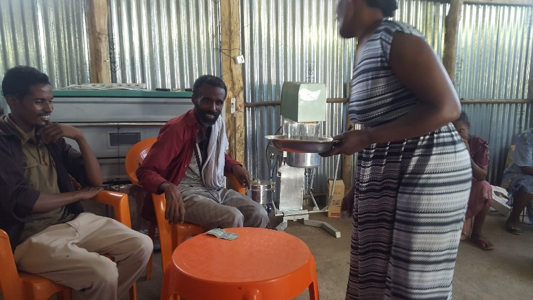
Women play a key role in agricultural production and trade, but their contributions tend to be undervalued and under-compensated. 2SCALE views activities through a ‘gender lens’, introducing a deliberately pro-women bias in order to increase women’s participation in all areas from planning and budgeting to management of cooperatives.
2SCALE teams worked with a gender advisor to ensure that women’s needs and perspectives were taken into account even at the planning stage. This often meant asking difficult questions such as:
- Are there implicit biases in the requirements to become full members of the cooperative? The common criteria such as land size or volumes produced generally discriminate against women.
- Can women afford the membership fees? If they can, do they have “permission” to pay, or to buy shares? A number of primary cooperatives are now considering specific measures proposed by 2SCALE, including reducing share size/price and discounted fees for women. 2SCALE teams work with the community, sensitizing male farmers (and especially community leaders) and sometimes facilitating local meetings to discuss practical solutions.
Change comes slowly, but there has been a marked increase particularly in capacity building for women. For example, in the 2SCALE dairy partnership, 42 lead farmers are helping to promote new fodder crops – 17 are women. In the sorghum-sesame partnership, our value addition activities focus almost entirely on women entrepreneurs.
The Tsehay farmers’ union in Gondar, northern Ethiopia, has a new $2 million cooking oil factory that needs 1,000 tons of oilseeds per month. Their goal is to source most of this from smallholder farmers from Amhara state to remain competitive while paying fair prices, and to sell at least half its output to low-income or BoP consumers. 2SCALE expertise is helping the union build its supply chain (e.g., farmer mobilization and training) and develop marketing strategies for cooking oil. Partners include the Debark Farmers’ Union.
The targets are ambitious: mobilize and train 3,000 farmers (30% women) this season and increase yields from the current 500 kg/ha to 1 ton/ha. The private sector will not just match but nearly double 2SCALE’s contribution.
The pilot kicked off in March with workshops bringing together representatives of 20 primary cooperatives from two farmer unions (Tsehay and Debark) to discuss workplans and budgets. The cooperatives have committed to supplying nearly 3,000 tons by November. Growers and fields have been identified (10,372 farmers, 4,856 hectares), and arrangements finalized for sourcing and distributing seeds on credit. An extension package was developed, with assistance from scientists from the regional agricultural research center. A total of 124 extension agents have been trained, and these in turn have trained nearly 4,000 farmers.
A Business Model Canvas workshop was held in June focused on business planning. The 21 participants (Tsehay’s marketing team and local government officials) discussed branding and distribution strategies to target the BoP market for cooking oil. Ongoing market studies will help validate these plans; after which the union will contract a professional marketing agency to design and roll out an advertising campaign.
Green Veggies – Replicating Success
A new pilot program has been launched in Addis Ababa, aiming to replicate the success of a previous 2SCALE partnership (concluded in 2017) that helped a vegetable farmers’ cooperative introduce high-quality branded products for urban markets. The pilot, led by the Berhane Bemercato consumer cooperative union, runs from April to November 2018.
The pilot fits well with the Ethiopian government’s strategy (based partly on the 2SCALE partnership with Meki Batu), which is to improve food accessibility for low-income urban households by linking farmer cooperatives with consumer associations.
2SCALE helped link the Birhan Bemercato consumers cooperative union to three farmer unions – Timret for green vegetables, Liben, and Robe Berga for potatoes (the potato unions already work with 2SCALE). Project support will help Birhan Bemercato upgrade their retail outlets in Addis, and develop supply contracts with the other three unions. Other partners include the Federal Cooperative Agency, Addis Ababa Cooperative Agency, Worabe University and Melkassa Agricultural Research Center.
A design workshop (in April, in Alemgena town) brought together representatives from the Birhan Bemercato and Timret unions, several producer and consumer cooperatives, and government cooperative agencies. Workplans and budgets have been agreed upon. Training programs on vegetable production have begun with the Timret union.
Our goals: by November, four retail outlets refurbished and branded; 200 tons of green vegetables and potatoes, supplied by 600 farmers, sold to 6,000 BoP customers in Addis.


